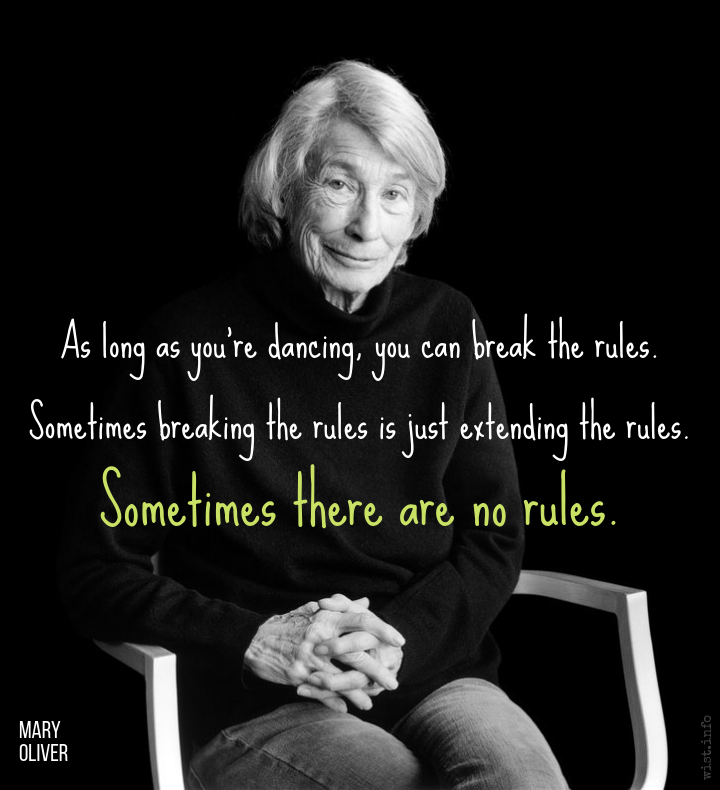I will apologise for many things that I have done, but I will not apologise for the things that should never be apologised for. It is a little theory of mine that has much exercised my mind lately, that most of the problems of this silly and delightful world derive from our apologising for those things which we ought not to apologise for, and failing to apologise for those things for which apology is necessary.
Stephen Fry (b. 1957) British actor, writer, comedian
Moab Is My Washpot, “Falling In,” ch. 3 (1997)
(Source)
Quotations about:
propriety
Note not all quotations have been tagged, so Search may find additional quotes on this topic.
I am afraid that the pleasantness of an employment does not always evince its propriety.
Etiquette means behaving yourself a little better than is absolutely essential.
Will Cuppy (1884-1949) American humorist, satirist, literary critic
How to Be a Hermit, “A Few Hints on Etiquette” (1929)
(Source)
Wherefore, we must not think it sufficient that we do any thing merely well; but we ought to make it our study to do every thing gracefully also.
[Non si dèe adunque l’uomo contentare di fare le cose buone, ma dèe studiare di farle anco leggiadre.]
Giovanni della Casa (1503-1556) Florentine poet, author, diplomat, bishop
Galateo: Or, A Treatise on Politeness and Delicacy of Manners [Il Galateo overo de’ costumi], ch. 28 (1558) [tr. Graves (1774)]
(Source)
(Source (Italian)). Alternate translations:
It is not inoughe for a man, to doe things that be good: but hee must also have a care, hee doe them with a good grace.
[tr. Peterson (1576)]
Therefore, a man must not be content with doing what is good, but he must also seek to do it gracefully.
[tr. Einsenbichler/Bartlett (1986)]
A man must therefore not be content to do things well, but must also aim to do them gracefully.
You there, reader, the over-solemn one,
Take a hike wherever — my verse is spun
Only for blithe, witty cognoscenti
“Up” for priapic jeux de spree aplenty
Or aroused by bells on harlot’s fingers.
He who in these randy pages lingers —
Though more stern than Curius or Fabricius
Soon gets tingly, and anon lubricious;
Then, lo, beneath a toga something pokes.
My little book’s salacious whims and jokes
Will lead even the chastest dames astray;
Taken with wine, my lines can make ’em bray!
Lucretia, more proper than whom none such,
Peeked between my covers, blushed very much,
And threw me down (but Brutus stood glowering).
Brutus, “Ciao!” — and back she’ll be devouring.[Qui gravis es nimium, potes hinc iam, lector, abire
Quo libet: urbanae scripsimus ista togae;
Iam mea Lampsacio lascivit pagina versu
Et Tartesiaca concrepat aera manu.
O quotiens rigida pulsabis pallia vena,
Sis gravior Curio Fabricioque licet!
Tu quoque nequitias nostri lususque libelli
Uda, puella, leges, sis Patavina licet.
Erubuit posuitque meum Lucretia librum,
Sed coram Bruto; Brute, recede: leget.]Martial (AD c.39-c.103) Spanish Roman poet, satirist, epigrammatist [Marcus Valerius Martialis]
Epigrams [Epigrammata], Book 11, epigram 16 (11.16) (AD 96) [tr. Schmidgall (2001)]
(Source)
(Source (Latin)). Alternate translations:
To read my Booke the Virgin shie
May blush, (while Brutus standeth by:)
But when He's gone, read through what's write,
And never staine a cheeke for it.
[tr. Herrick (1658), "On his Booke"]
Haste hence, morose remarker, haste:
Urbanity alone has taste.
No strains Lampsacian foul my page,
Nor feels my brass Tartessian rage.
yet here the mirth that cannot cloy,
Shall often shake thy sides with joy:
Suppose thy mind of graver mold,
Than Curius' self possest of old;
Or had thy features greater force,
Than his, that brav'd the solar course.
Nay thou my nonsense keen shalt read,
Meek made of Patavinian breed.
Lucretia blusht, and dropt the book;
Nor, Brutus there, would dain a look.
Brutus, begone: thy dame, at ease
Will show how my perusals please.
[tr. Elphinston (1782), Book 3, ep. 64, "To the Morose"]
Reader, if you are exceedingly staid, you may shut up my book whenever you please; I write now for the idlers of the city; my verses are devoted to the god of Lampsacus, and my hand shakes the castanet, as briskly as a dancing-girl of Cadiz. Oh! how often will you feel your desires aroused, even though you were more frigid than Curius and Fabricius. You too, young damsel, will read the gay and sportive sallies of my book not without emotion, even though you should be a native of Patavium. Lucretia blushes, and lays my book aside; but Brutus is present. Let Brutus retire, and she will read.
[tr. Bohn's Classical (1859). "To His Readers"]
You, reader, who are too strait-laced, can now go away from here whither you will: I wrote these verses for the citizen of wit; now my page wantons in verse of Lampascus, and beats the timbrel with the hand of a figurante of Tartessus. Oh, how often will you with your ardour disarrange your garb, though you may be more strait-laced than Curius and Fabricus! You also, O girl, may, when in your cups, read the naughtiness and sportive sallis of my little book, though you may be from Patavium. Lucretia blushed and laid down my volume; but Brutus was present. Brutus, go away: she will read it.
[tr. Ker (1919)]
Grave reader, go -- wherever you may please --
I'm writing now for Roman cits at ease.
This scroll is full of Priapean rhymes
And sound of castanets from Spanish climes.
Though you more stern than ancient Curius be
You will be fired, methinks, if you read me.
Yet modest maidens at this sportive book
May in their cups perchance with favour look,
And matrons hide it from their lords away --
Meaning to finish it some other day.
[tr. Pott & Wright (1921), "A Warning to Prudes"]
Too serious reader, you may leave at this point and go where you please. I wrote these pieces for the city gown; now my page frolics with verse of Lampsacus and clashes the cymbals with Tartesian hand. Oh, how often you will strike your garment with rigid member, though you be graver than Curius and Fabricius. You also, my girl, will not be dry as you read the naughty jests of my little book, though you come from Patavium. Lucretia blushed and put my book aside, but that was in front of Brutus. Brutus, withdraw: she will read.
[tr. Shackleton Bailey (1993)]
You can leave now, Reader, over-severe,
go, where you please: I write for the city;
my page, now, runs wild with Priapic verse,
strikes the cymbals, with a dancing-girl’s hand.
O, how you’ll beat your cloak in rigid vein,
though you’re weightier than Curius, Fabricius!
You too, that read naughty jokes in my little book,
you’ll be wet, girl, though you’re from moral Padua.
Lucretia would have blushed, and shut my volume,
while Brutus was there; but when he left: she’d have read.
[tr. Kline (2006)]
Persnickety readers, time to leave!
I now write stuff to make you grieve.
My toga off, my lines will jiggle
And with the bellydancer wriggle.
Now what we wear will ask no pardon
For standing out with sculptured hard-on.
To make the Founding Fathers horny,
And Boston matrons less than thorny --
They'll lather up between their thighs
And wonder at their fellows' size.
Of course Lucretia will not look
Till Brutus goes -- then: Seize the book!
[tr. Wills (2007)]
Let every prudish reader use his feet
And bugger off -- I write for the elite.
My verses gambol with Priapic verve
As dancing harlots' patter starts a nerve.
Though stern as Curius or like Fabricius,
Your prick will stiffen and grow vicious.
Girls while they drink -- even the chastest folk --
Will read each naughty word and dirty joke.
Lucretia blushes, throws away my book.
Her husband goes. She takes another look.
[tr. Reid]
Between justice and respect there is this difference, that it is the part of justice not to injure; of respect, not to offend. In this the force of propriety is extremely clear.
[Est autem, quod differat in hominum ratione habenda inter iustitiam et verecundiam. Iustitiae partes sunt non violare homines, verecundiae non offendere; in quo maxime vis perspicitur decori.]
Marcus Tullius Cicero (106-43 BC) Roman orator, statesman, philosopher
De Officiis [On Duties; On Moral Duty; The Offices], Book 1, ch. 28 (1.28) / sec. 99 (44 BC) [tr. McCartney (1798)]
(Source)
Verecundia is usually translated as "modesty," but Cicero is using a more complex sense here, leading to a variety of translations. Peabody translates it as "courtesy" that is "part of or a consequence of modesty." Edmonds (at length) considers the term untranslatable here, "an inward abhorrence of moral turpitude, through which the conscience is awed, and may be said to blush."
(Source (Latin)). Alternate translations:
But here we must observe, that there is a great deal of difference between that which justice, and that which this modesty, respect, or reverence demands, in relation to other people. It is the duty of justice, not to injure or wrong any man; of respect, or reverence, not to do anything that may offend or displease him; wherein more especially the nature of that decorum we are speaking of consists.
[tr. Cockman (1699)]
But, in our estimate of human life, we are to make a difference between justice and moral susceptibility. The dictate of justice is to do no wrong; that of moral susceptibility is to give no offense to mankind, and in this the force of the graceful is most perceptible.
[tr. Edmonds (1865)]
But in the treatment of men there is a difference between justice and courtesy. It is the part of justice not to injure men; of courtesy, not to give them offence, and it is in this last that the influence of becomingness is most clearly seen.
[tr. Peabody (1883)]
In our social relations there is a difference between justice and sympathy. Not to wrong our fellow-men is the function of justice: that of sympathy is not to wound their feelings; herein the power of decorum is most conspicuous.
[tr. Gardiner (1899)]
There is, too, a difference between justice and considerateness in one's relations to one's fellow-men. It is the function of justice not to do wrong to one's fellow-men; of considerateness, not to wound their feelings; and in this the essence of propriety is best seen.
[tr. Miller (1913)]
Moreover, in maintaining distinctions among men there is a degree of difference between justice and decent respect. The duty of justice is not to do violence to men. The duty of decent respect is not to insult them; this latter especially reveals the essence of decorum.
[tr. Edinger (1974)]
The superior man in everything considers righteousness to be essential. He performs it according to the rules of propriety. He brings it forth in humility. He completes it with sincerity. This is indeed a superior man.
[君子義以為質,禮以行之,孫以出之,信以成之,君子哉]
Confucius (c. 551- c. 479 BC) Chinese philosopher, sage, politician [孔夫子 (Kǒng Fūzǐ, K'ung Fu-tzu, K'ung Fu Tse), 孔子 (Kǒngzǐ, Chungni), 孔丘 (Kǒng Qiū, K'ung Ch'iu)]
The Analects [論語, 论语, Lúnyǔ], Book 15, verse 18 (15.18) (6th C. BC – 3rd C. AD) [tr. Legge (1861), 15.17]
(Source)
(Source (Chinese)). Alternate translations, noting where Legge's numbering is used:
When the "superior man" regards righteousness as the thing material, gives operation to it according to the rules of propriety, lets it issue in humility, and become complete in sincerity, -- there indeed is your superior man!
[tr. Jennings (1895), 15.17]
A wise and good man makes Right the substance of his being; he cries it out with judgment and good sense; he speaks it with modesty; and he attains it with sincerity: -- such a man is a really good and wise man!
[tr. Ku Hung-Ming (1898), 15.17]
The noble man takes the Right as his foundation principle, reduces it to practice with all courtesy, carries it out with modesty, and renders it perfect with sincerity, -- such is the noble man.
[tr. Soothill (1910), 15.17]
When a princely man makes the Right his fundamental principle, makes Courtesy his rule in evolving it, Modesty his rule for exhibiting it, and Sincerity his rule for effectuating it perfectly, -- what a princely man he is!
[tr. Soothill (1910), 15.17, alternate]
The proper man gives substance to his acts by equity. He proceeds according to the rites, puts them forth modestly, and makes them perfect by sticking to his word. That's the proper man (in whom's the voice of his forebears).
[tr. Pound (1933), 15.17]
The gentleman who takes the right as his material to work upon and ritual as the guide in putting what is right into practice, who is modest in setting out his projects and faithful in carrying them to their conclusions, he indeed is a true gentleman.
[tr. Waley (1938), 15.17]
He whose very substance is justice; whose actions are governed by the rites; whose participation in affairs is compliant; and whose crowning perfection is truthfulness -- that man is a perfect gentleman.
[tr. Ware (1950)]
The gentleman has morality as his basic stuff and by observing the rites puts it into practice, by being modest gives it expression, and by being trustworthy in word brings it to completion. Such is a gentleman indeed!
[tr. Lau (1979)]
Righteousness the gentleman regards as the essential stuff and the rites are his means of putting it into effect. If modesty is the quality with which he reveals it and good faith is his method of bringing it to completion, he is indeed a gentleman.
[tr. Dawson (1993)]
A gentleman takes justice as his basis, enacts it in conformity with the ritual, expounds it with modesty, and through good faith, brings it to fruition. That is how a gentleman proceeds.
[tr. Leys (1997)]
A gentleman considers righteousness his major principle; he practices it in accordance with the rituals, utters it in modest terms, and fulfils it with truthfulness. A gentleman indeed!
[tr. Huang (1997)]
A gentleman takes the righteousness as his essence, practices with the rituals, words with modesty, and gets achievement with honesty. It is the gentleman.
[tr. Cai/Yu (1998), v. 402]
Having a sense of appropriate conduct [yi] as one's basic disposition [zhi], developing it in observing ritual propriety [li], expressing it with modesty, and consummating it in making good on one's word [xin]; this then is an exemplary person [junzi].
[tr. Ames/Rosemont (1998)]
If a gentleman has right as his substance, and puts it in practice with propriety, promulgates it with lineality, and brings it to a conclusion with fidelity, he is a gentleman indeed!
[tr. Brooks/Brooks (1998), LY17 c0270 addition]
The noble-minded make Duty their very nature. They put it into practice through Ritual; they make it shine through humility; and standing by their words, they perfect it. Then they are noble-minded indeed!
[tr. Hinton (1998)]
The gentleman takes rightness as his substance, puts it into practice by means of ritual, gives it expression through modesty, and perfects it by being trustworthy. Now that is a gentleman!
[tr. Slingerland (2003)]
The gentleman makes rightness the substance, practices it through ritual, displays it with humility, brings it to completion with trustworthiness. That’s the gentleman.
[tr. Watson (2007)]
The gentleman makes rightness the substance. He works at it through ritual propriety; he expresses it with modesty; he brings it to completion by being trustworthy. Now that is a gentleman!
[tr. Annping Chin (2014)]
A Jun Zi regards righteousness and honor as fundamental bases, acts in line with Li, shows humility, delivers promises, and completes contracts with sincerity and trust. If so, he is indeed a Jun Zi.
[tr. Li (2020)]
A leader takes rightness as their essence, puts it into practice through ritual, manifests it through humility, and brings it to fruition through trustworthiness. This is how a leader behaves.
[tr. Brown (2021)]
His father wasn’t the monster he could have been with the power he held over his slaves. He wasn’t a monster at all. Just an ordinary man who sometimes did the monstrous things his society said were legal and proper.
Virtuous love consists in decorous desire for the beautiful.
[Δίκαιος ἔρως ἀνυβρίστως ἐφίεσθαι τῶν καλῶν]
Democritus (c. 460 BC - c. 370 BC) Greek philosopher
Frag. 73 (Diels) [tr. Freeman (1948)]
(Source)
Diels citation "73. (87 N.) DEMOKRATES. 38."; collected in Joannes Stobaeus (Stobaios) Anthologium III, 5, 23. Freeman notes this as one of the Gnômae, from a collection called "Maxims of Democratês," but because Stobaeus quotes many of these as "Maxims of Democritus," they are generally attributed to the latter. Alternate translations:
- "Rightful love is longing without violence for the noble." [tr. Barnes (1987)]
- "Just lust is longing for noble things without arrogance." [tr. @sententiq (2018)]
Queerly shaped pieces of flat silver, contrived for purposes known only to their designers, have no place on a well appointed table. So if you use one of these implements for a purpose not intended, it cannot be a breach of etiquette, since etiquette is founded on tradition, and has no rules concerning eccentricities.
Emily Post (1872-1960) American author, columnist [née Price]
Etiquette: The Blue Book of Social Usage, ch. 37 “Flat Silver” (1922; 1927 ed.)
(Source)
On the other hand, we denounce with righteous indignation and dislike men who are so beguiled and demoralized by the charms of pleasure of the moment, so blinded by desire, that they cannot foresee the pain and trouble that are bound to ensue; and equal blame belongs to those who fail in their duty through weakness of will, which is the same as saying through shrinking from toil and pain. These cases are perfectly simple and easy to distinguish. In a free hour, when our power of choice is untrammeled and when nothing prevents our being able to do what we like best, every pleasure is to be welcomed and every pain avoided. But in certain circumstances and owing to the claims of duty or the obligations of business it will frequently occur that pleasures have to be repudiated and annoyances accepted. The wise man therefore always holds in these matters to this principle of selection: he rejects pleasures to secure other greater pleasures, or else he endures pains to avoid worse pains.
[At vero eos et accusamus et iusto odio dignissimos ducimus, qui blanditiis praesentium voluptatum deleniti atque corrupti, quos dolores et quas molestias excepturi sint, obcaecati cupiditate non provident, similique sunt in culpa, qui officia deserunt mollitia animi, id est laborum et dolorum fuga. et harum quidem rerum facilis est et expedita distinctio. nam libero tempore, cum soluta nobis est eligendi optio, cumque nihil impedit, quo minus id, quod maxime placeat, facere possimus, omnis voluptas assumenda est, omnis dolor repellendus. temporibus autem quibusdam et aut officiis debitis aut rerum necessitatibus saepe eveniet, ut et voluptates repudiandae sint et molestiae non recusandae. itaque earum rerum hic tenetur a sapiente delectus, ut aut reiciendis voluptatibus maiores alias consequatur aut perferendis doloribus asperiores repellat.]
Marcus Tullius Cicero (106-43 BC) Roman orator, statesman, philosopher
De Finibus Bonorum et Malorum [On the Ends of Good and Evil], Book 1, sec. 33 (ch. 10) (44 BC) [tr. Rackham (1914)]
(Source)
Alt. trans.:
- "Then again we criticize and consider wholly deserving of our odium those who are so seduced and corrupted by the blandishments of immediate pleasure that they fail to foresee in their blind passion the pain and harm to come. Equally blameworthy are those who abandon their duties through mental weakness -- that is, through the avoidance of effort and pain. It is quite simple and straightforward to distinguish such cases. In our free time, when our choice is unconstrained and there is nothing to prevent us doing what most pleases us, every pleasure is to be tasted, every pain shunned. But in certain circumstances it will often happen that either the call of duty or some sort of crisis dictates that pleasures are to be repudiated and inconveniences accepted. And so the wise person will uphold the following method of selecting pleasures and pains: pleasures are rejected when this results in other greater pleasures; pains are selected when this avoids worse pains." [On Moral Ends, tr. Woolf (2001)]
- "But in truth we do blame and deem most deserving of righteous hatred the men who, enervated and depraved by the fascination of momentary pleasures, do not foresee the pains and troubles which are sure to befall them, because they are blinded by desire, and in the same error are involved those who prove traitors to their duties through effeminacy of spirit, I mean because they shun exertions and trouble. Now it is easy and and simple to mark the difference between these cases. For at our seasons of ease, when we have untrammelled freedom of choice, and when nothing debars us from the power of following the course that pleases us best, then pleasure is wholly a matter for our selection and pain for our rejection. On certain occasions however either through the inevitable call of duty or through stress of circumstances, it will often come to pass that we must put pleasures from us and must make no protest against annoyance. So in such cases the principle of selection adopted by the wise man is that he should either by refusing cerftain pleasures attain to other and greater pleasures or by enduring pains should ward off pains still more severe." [tr. Reid (1883)]
- "But we do accuse those men, and think them entirely worthy of the greatest hatred, who, being made effeminate and corrupted by the allurements of present pleasure, are so blinded by passion that they do not foresee what pains and annoyances they will hereafter be subject to; and who are equally guilty with those who, through weakness of mind, that is to say, from eagerness to avoid labour and pain, desert their duty. And the distinction between these things is quick and easy. For at a time when we are free, when the option of choice is in our own power, and when there is nothing to prevent our being able to do whatsoever we choose, then every pleasure may be enjoyed, and every pain repelled. But on particular occasions it will often happen, owing whether to the obligations of duty or the necessities of business, that pleasures must be declined and annoyances must not be shirked. Therefore the wise man holds to this principle of choice in those matters, that he rejects some pleasures, so as, by the rejection to obtain others which are greater, and encounters some pains, so as by that means to escape others which are more formidable." [On the Chief Good and Evil, tr. Yongue (1853)]
As long as you’re dancing, you can break the rules.
Sometimes breaking the rules is just extending the rules.Sometimes there are no rules.
The last temptation is the greatest treason:
To do the right deed for the wrong reason.T. S. Eliot (1888-1965) American-British poet, critic, playwright [Thomas Stearns Eliot]
Murder in the Cathedral, Act 1 [Thomas] (1935)
(Source)
Respectfulness, without the rules of propriety, becomes laborious bustle; carefulness, without the rules of propriety, becomes timidity; boldness, without the rules of propriety, becomes insubordination; straightforwardness, without the rules of propriety, becomes rudeness.
[恭而無禮則勞、愼而無禮則葸、勇而無禮則亂、直而無禮則絞。]
Confucius (c. 551- c. 479 BC) Chinese philosopher, sage, politician [孔夫子 (Kǒng Fūzǐ, K'ung Fu-tzu, K'ung Fu Tse), 孔子 (Kǒngzǐ, Chungni), 孔丘 (Kǒng Qiū, K'ung Ch'iu)]
The Analects [論語, 论语, Lúnyǔ], Book 8, verse 2 (8.2.1) (6th C. BC – AD 3rd C.) [tr. Legge (1861)]
(Source)
(Source (Chinese)). Brooks (below) believes this text was interpolated into Book 8 at the time that Book 14 was collected. Alternate translations:
Without the Proprieties, we have these results: for deferential demeanour, a worried one; for calm attentiveness, awkward bashfulness; for manly conduct, disorderliness; for straightforwardness, perversity.
[tr. Jennings (1895)]
Earnestness without judgment becomes pedantry; caution without judgment becomes timidity; courage without judgment leads to crime; uprightness without judgment makes men tyrannical.
[tr. Ku Hung-Ming (1898)]
Courtesy uncontrolled by the laws of good taste becomes labored effort, caution uncontrolled becomes timidity, boldness uncontrolled becomes recklessness, and frankness uncontrolled become effrontery.
[tr. Soothill (1910)]
Respect without rules of procedure becomes laborious fuss: scrupulosity without rules of procedure, timidity (fear to show the thought); boldness without such rules breeds confusion; directness without rules of procedure becomes rude.
[tr. Pound (1933)]
Courtesy not bounded by the prescriptions of ritual becomes tiresome. Caution not bounded by the prescriptions of ritual becomes timidity, daring becomes turbulence, inflexibility becomes harshness.
[tr. Waley (1938)]
Not to follow the rites in being modest is annoyance. Not to follow them in exercising care is timidity. Not to follow them in acts of bravery is confusion. Not to follow them in our uprightness is brusqueness.
[tr. Ware (1950)]
Unless a man has the spirit of the rites, in being respectful he will wear himself out, in being careful he will become timid, in having courage he will become unruly, and in being forthright he will become intolerant.
[tr. Lau (1979)]
If one is courteous but does without ritual, then one dissipates one's energies; if one is cautious but does without ritual, then one becomes timid; if one is bold but does without ritual, then one becomes reckless; if one is forthright but does without ritual, then one becomes rude.
[tr. Dawson (1993)]
Without ritual, courtesy is tiresome; without ritual, prudence is timid; without ritual, bravery is quarrelsome; without ritual, frankness is hurtful.
[tr. Leys (1997)]
Respectfulness without the rituals becomes laboriousness; discretion without the rituals becomes apprehensiveness; courage without the rituals becomes rebelliousness; straightforwardness without the rituals becomes impetuosity.
[tr. Huang (1997)]
One would be tired if one is humble but not polite; One would be week if one is cautious but not polite; One would be foolhardy if one is brave but not polite; One would be caustic if one is frank but not polite.
[tr. Cai/Yu (1998), #190]
Deference unmediated by observing ritual propriety [li] is lethargy; caution unmediated by observing ritual propriety is timidity; boldness unmediated by observing ritual propriety is rowdiness; candor unmediated by observing ritual propriety is rudeness.
[tr. Ames/Rosemont (1998)]
If he is respectful without propriety, he becomes wearisome. If he is careful without propriety, he becomes finicky. If he is brave without propriety, he becomes disruptive. If he is upright without propriety, he becomes censorious.
[tr. Brooks/Brooks (1998)]
Reverence becomes tedium without Ritual, and caution becomes timidity. Without Ritual, courage becomes recklessness, and truth becomes intolerance.
[tr. Hinton (1998)]
If you are respectful but lack ritual you will become exasperating; if you are careful but lack ritual you will become timid; if you are courageous but lack ritual you will become unruly; and if you are upright but lack ritual you will become inflexible.
[tr. Slingerland (2003)]
Courtesy without ritual becomes labored; caution without ritual becomes timidity; daring without ritual becomes riotousness; directness without ritual becomes obtrusiveness.
[tr. Watson (2007)]
Unless a man acts according to the spirit of the rites, in being respectful, he will tire himself out; in being cautious, he will become timid; in being brave, he will become unruly; in being forthright, he will become derisive.
[tr. Chin (2014)]
An idealist is one who, on noticing that a rose smells better than a cabbage, concludes that it is also more nourishing.
H. L. Mencken (1880-1956) American writer and journalist [Henry Lewis Mencken]
A Little Book in C Major, ch. 2, § 3 (1916)
(Source)
Variants:
IDEALIST: one who, on noticing that a rose smells better than a cabbage, concludes that it will also make better soup.
A Book of Burlesques, "The Jazz Webster" (1924)
An idealist is one who, on noticing that a rose smells better than a cabbage, concludes that it will also make better soup.
Chrestomathy, ch. 30 "Sententiae" (1949)
To see the right and not do it is cowardice.
[見義不爲、無勇也。]
Confucius (c. 551- c. 479 BC) Chinese philosopher, sage, politician [孔夫子 (Kǒng Fūzǐ, K'ung Fu-tzu, K'ung Fu Tse), 孔子 (Kǒngzǐ, Chungni), 孔丘 (Kǒng Qiū, K'ung Ch'iu)]
The Analects [論語, 论语, Lúnyǔ], Book 2, verse 24 (2.24.2) (6th C. BC – AD 3rd C.) [tr. Soothill (1910)]
(Source)
(Source (Chinese)). Alternate translations:
To see what is right and not to do it is want of courage.
[tr. Legge (1861)]
It is (moral) cowardice to leave undone what one perceives to be right to do.
[tr. Jennings (1895)]
To see what is right and to act against one's judgment shows a want of courage.
[tr. Ku Hung-Ming (1898)]
To see justice and not act upon it is cowardice.
[tr. Pound (1933)]
To see what is right and not do it is cowardice.
[tr. Waley (1938)]
It is cowardice to fail to do what is right.
[tr. Ware (1950)]
Faced with what is right, to leave it undone shows a lack of courage.
[tr. Lau (1979)]
To see what is right and not to do it is cowardice.
[tr. Dawson (1993)]
To not act when justice commands, that is cowardice.
[tr. Leys (1997)]
To see something you ought to do and not to do it is want of courage.
[tr. Huang (1997)]
To see something you ought to do and not to do it is want of courage.
[tr. Huang (1997)]
One does not do the righteous things when one sees them, it is not brave.
[tr. Cai/Yu (1998), #40]
Failing to act on what is seen as appropriate [yi] is a want of courage.
[tr. Ames/Rosemont (1998)]
If he sees what is right but does not do it, he lacks courage.
[tr. Brooks/Brooks (1998)]
And to recognize a Duty without carrying it out is mere cowardice.
[tr. Hinton (1998)]
To see what is right, but to fail to do it, is to be lacking in courage.
[tr. Slingerland (2003)]
To see what is right and not do it is cowardly.
[tr. Watson (2007)]
Faced with what is right yet doing nothing about it shows a lack of courage.
[tr. Chin (2014)]
Being aloof from a righteous obligation is cowardice.
[tr. Li (2020)]
The real art of conversation is not only to say the right thing in the right place, but, far more difficult still, to leave unsaid the wrong thing at the tempting moment.
Dorothy Nevill (1826-1913) British society hostess, wit, horticulturalist
Under Five Reigns, ch. 5 (1910)
(Source)
The proper use of embarrassment is as a conscience of manners. As your conscience might trouble you if you do anything immoral, your sense of embarrassment should be activated if you do anything unmannerly. As conscience should come from within, so should embarrassment. Hot tingles and flushes are quite proper when they arise from your own sense of having violated your own standards, inadvertently or advertently, but Miss Manners hereby absolves everyone from feeling any embarrassment deliberately imposed by others.
Judith Martin (b. 1938) American author, journalist, etiquette expert [a.k.a. Miss Manners]
Miss Manners’ Guide to Excruciatingly Correct Behavior, Introduction (1983)
(Source)
So also anybody can become angry — that is easy, and so it is to give and spend money; but to be angry with or give money to the right person, and to the right amount, and at the right time, and for the right purpose, and in the right way — this is not within everybody’s power and is not easy; so that to do these things properly is rare, praiseworthy, and noble.
[οὕτω δὲ καὶ τὸ μὲν ὀργισθῆναι παντὸς καὶ ῥᾴδιον, καὶ τὸ δοῦναι ἀργύριον καὶ δαπανῆσαι: τὸ δ᾽ ᾧ καὶ ὅσον καὶ ὅτε καὶ οὗ ἕνεκα καὶ ὥς, οὐκέτι παντὸς οὐδὲ ῥᾴδιον: διόπερ τὸ εὖ καὶ σπάνιον καὶ ἐπαινετὸν καὶ καλόν.]
Aristotle (384-322 BC) Greek philosopher
Nicomachean Ethics [Ἠθικὰ Νικομάχεια], Book 2, ch. 9 (2.9, 1109a.27) (c. 325 BC) [tr. Rackham (1934)]
(Source)
(Source (Greek)). Alternate translations:
Just so to be angry, to give money, and be expensive, is what any man can do, and easy: but to do these to the right person, in due proportion, at the right time, with a right object, and in the right manner, this is not as before what any man can do, nor is it easy; and for this cause goodness is rare, and praiseworthy, and noble.
[tr. Chase (1847)]
And so, too, to get angry is an easy matter, and in any man's power; or to give away money or to spend it: but to decide to whom to give it, and how large a sum, and when, and for what purpose, and how, is neither in every many's power, nor an easy matter. And hence it is that excellence herein is rare and praiseworthy and noble.
[tr. Williams (1869), sec. 37]
So too anybody can get angry -- that is an easy matter -- and anybody can give or spend money, but to give it to the right persons, to give the right amount of it and to give it at the right time and for the right cause and in the right way, this is not what anybody can do, nor is it easy. That is the reason why it is rare and laudable and noble to do well.
[tr. Welldon (1892)]
Thus anyone can be angry -- that is quite easy; anyone can give money away or spend it: but to do these things to the right person, to the right extent, at the right time, with the right object, and in the right manner, is not what everybody can do, and is by no means easy; and that is the reason why right doing is rare and praiseworthy and noble.
[tr. Peters (1893)]
So, too, anyone can get angry -- that is easy -- or give or spend money; but to do this to the right person, to the right extent, at the right time, with the right motive, and in the right way, that is not for everyone, nor is it easy; wherefore goodness is both rare and laudable and noble.
[tr. Ross (1908)]
In the same way, getting angry is also something everyone can do and something easy, as is giving or spending money. Determining whom to give it to, though, and how much, when, for the sake of what, and in what way -- that is no longer something everyone can do or something easy. That is why doing it well is a rare thing and a praiseworthy and noble one.
[tr. Reeve (1948)]
So, too, anyone can get angry or give money or spend it, and it is easy. But to give to the right person, the right amount, at the right time, for the right purpose, and in the right manner, this is not something anyone can do nor is it easy to do; and it is in view of this that excellence is rare and praiseworthy and noble.
[tr. Apostle (1975)]
So too it is easy to get angry -- anyone can do that -- or to give and spend money; but to feel or act towards the right person to the right extent at the right time for the right reason in the right way -- that is not easy, and it is not everyone that can do it. Hence to do these things well is a rare, laudable, and fine achievement.
[tr. Thomson/Tredennick (1976)]
So too anyone can get angry, or give and spend money -- these are easy, but doing them in relation to the right person, in the right amount, at the right time, with the right aim in view, and in the right way -- that is not something anyone can do, nor is it easy. This is why excellence in these things is rare, praiseworthy, and noble.
[tr. Crisp (2000)]
And so too, to become angry belongs to everyone and is an easy thing, as is also giving and spending money; but to whom [one ought to do so], how much, when for the sake fo what, and how -- these no longer belong to everyone nor are easy. Thus in fact acting well is rare, praiseworthy, and noble.
[tr. Bartlett/Collins (2011)]
Note that some translations paraphrase this only to speak of anger, e.g., Edith M. Leonard, et al., The Child: At Home and School (1944):
Anybody can become angry, that is easy; but to be angry with the right person, and to the right degree, and at the right time, for the right purpose, and in the right way, that is not within everybody's power and is not easy.
I have no use for the strictures of You must. You must not.
[無可無不可]
Confucius (c. 551- c. 479 BC) Chinese philosopher, sage, politician [孔夫子 (Kǒng Fūzǐ, K'ung Fu-tzu, K'ung Fu Tse), 孔子 (Kǒngzǐ, Chungni), 孔丘 (Kǒng Qiū, K'ung Ch'iu)]
The Analects [論語, 论语, Lúnyǔ], Book 18, verse 8 (18.8.5) (6th C. BC) [ed. Lao-Tse, tr. Hinton (1998)]
(Source)
(Source (Chinese)). Alternate translations:
I have no course for which I am predetermined, and no course against which I am predetermined.
[tr. Legge (1861)]
I will take no liberties, I will have no curtailing of my liberty.
[tr. Jennings (1895); in the footnote he gives a more raw translation, "Without possibilities (or freedom to act) -- without impossibilities"]
With me there is no inflexible "thou shalt" or 'thou shalt not."
[tr. Soothill (1910)]
I have no categoric can and cannot.
[tr. Pound (1933)]
I have no "thou shalt" or "thou shalt not."
[tr. Waley (1938)]
I accept life as it comes. [tr. Ware (1950)]I have no preconceptions about the permissible and the impermissible.
[tr. Lau (1979)]
I avoid saying what should or should not be done.
[tr. Dawson (1993)]
I follow no rigid prescriptions on what should, or should not, be done.
[tr. Leys (1997)]
I have neither favorable nor unfavorable situation. [tr. Huang (1997)]I have not any stubborn positiveness or negation.
[tr. Cai/Yu (1998)]
I do not have presuppositions as to what may and may not be done.
[tr. Ames/Rosemont (1998)]
I have no "may" and no "may not."
[tr. Brooks/Brooks (1998)]
I have no preconceptions about what one can or cannot do.
[tr. Annping Chin (2014)]
This may be the source of Lin-Yutang, ed. The Wisdom of Confucius (1938):
The superior man goes through his life without any one preconceived course of action or any taboo. He merely decides for the moment what is the right thing to do.



















